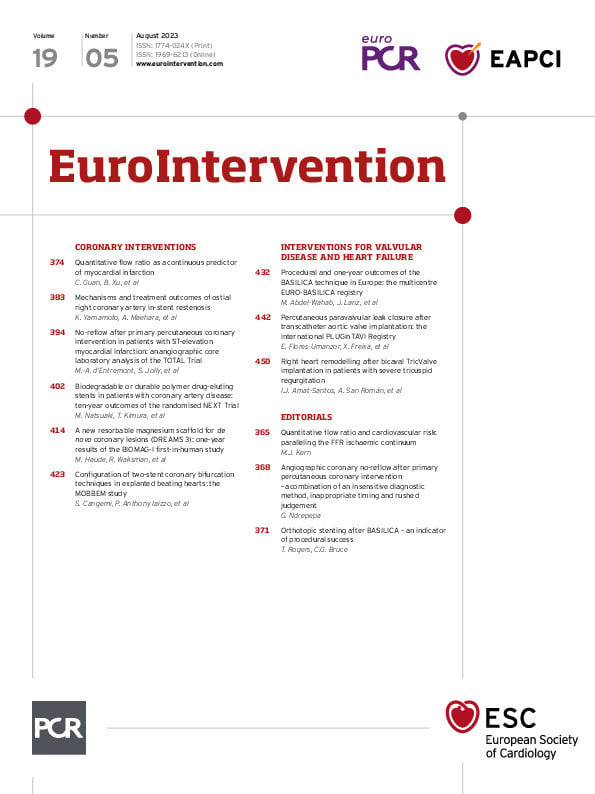An interview with the Chair Giulio Stefanini
Figure 1

Figure 1.
What is the role of the committee?
Any proposal for scientific documents received by the EAPCI must be submitted to the Scientific Documents and Initiatives Committee (SDIC) for approval prior to their development. Together with my Co-Chair Nieves Gonzalo and committee members, the SDIC reviews all document proposals and makes approval or rejection recommendations. These recommendations are then reviewed and confirmed by the EAPCI Executive Committee. The responsibilities of the committee include the screening and validation of solicited and unsolicited documentation proposals as well as the identification of topics suitable for EAPCI scientific documents. Once the topic has been selected and approved, the committee is responsible for the administrative supervision and coordination of Writing Groups, coordination of the declarations of interest process for appointed authors as well as coordination of the review process.
How do EAPCI scientific documents benefit the community?
The key benefit of EAPCI scientific documents is to provide guidance for clinical management on topics not covered, or not covered in sufficient detail, in the existing or upcoming ESC Clinical Practice Guidelines. Whilst their topics and scope should not overlap with those of guidelines, scientific documents may complement them by providing more in-depth information in specific areas that cannot be expanded upon in guidelines. Our scientific documents evaluate scientific evidence, explore expert consensus in a structured way and, typically, include very practical advice for daily management of the topics discussed.
How are topics chosen and how can EAPCI members contribute?
Any EAPCI member may submit a proposal for a scientific document; any proposal received is subject to the robust and transparent review process of the SDIC followed by the EAPCI Executive Committee. Furthermore, one of the roles of the SDIC is to identify areas of unmet need and propose these topics to the EAPCI Executive Committee for consideration.
What are the upcoming topics?
- Percutaneous coronary intervention in patients with cancer
- Follow-up strategies in patients after transcatheter aortic valve replacement
- Day-clinic care for percutaneous cardiovascular interventions
- Sex-related considerations in mitral and tricuspid valve interventions
News
- Attending ESC Congress 2023 in Amsterdam from August 25th-28th? Come to the ESC Plaza and find out more about EAPCI.
- Not yet an EAPCI member? Join online https://www.escardio.org/EAPCI

